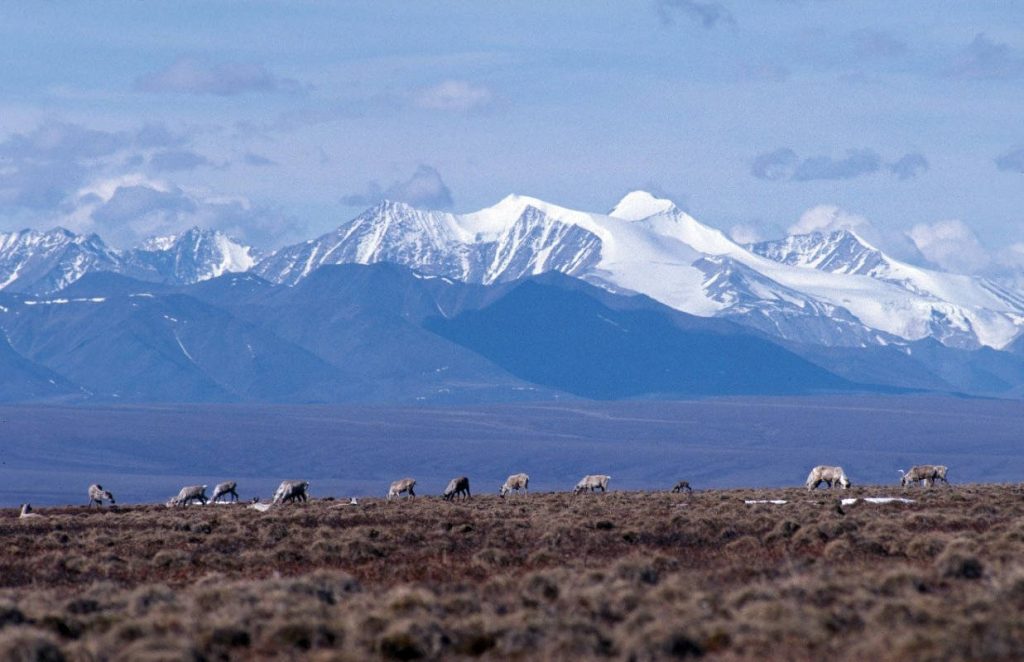Alaska Native lawsuit accuses feds of hiding Arctic refuge oil impact information
The suit says Freedom of Information Act requests have been stonewalled for months, even as the Interior Department rushes to approve drilling.

ANCHORAGE, Alaska — Alaska Natives and environmental groups sued the Trump administration on Wednesday, accusing it of concealing information about the effects of oil development in the long-protected Arctic National Wildlife Refuge.
The lawsuit, filed in U.S. District Court in Anchorage, alleges the U.S. Department of the Interior broke federal law by failing to produce information about how it drew up plans for oil leasing in the refuge. Numerous requests filed under the U.S. Freedom of Information Act have been stonewalled for months, the plaintiffs allege.
“This case is about bringing transparency to what has been a rushed and secretive process to sell out a national treasure to the oil industry,” Patrick Lavin, Alaska policy adviser for Defenders of Wildlife, one of four plaintiffs in the case, said in a statement.
The refuge, in northwestern Alaska, had been off-limits to oil development for decades. But a 2017 tax overhaul signed into law by President Donald Trump included a provision requiring lease sales in the refuge’s 1.5 million acre coastal plain, a region long coveted by the oil industry for its hydrocarbon potential but prized by natives and environmentalists for its wildlife value.
The groups are seeking information about the effect on the Porcupine caribou herd, which roams between Alaska and Canada and uses the area targeted for oil development; the effect of 3-D seismic surveys desired by the Bureau of Land Management, and information about development work that Interior officials were doing during the federal government shutdown early this year.
“We need to know what agencies are doing and reviewing when deciding what happens to sacred lands and our way of life,” said Bernadette Demientieff, executive director of the Gwich’in Steering Committee, in a statement. The committee represents Gwich’in Athabascans, First Nations people who live largely above the Arctic Circle in Alaska and Canada.
Trump officials have vowed to hold an ANWR lease sale by the end of this year. Alaska officials such as current Republican Governor Mike Dunleavy support drilling in the refuge, as state oil production has fallen since peaking at more than 2 million barrels a day in 1988.
Output is currently about 474,000 bpd, according to U.S. Energy Department figures.
“The department cannot comment on ongoing litigation,” Molly Block, Interior’s press secretary, said in an email, when asked about the lawsuit.
The case is Gwich’in Steering Committee et al v. U.S. Dept of the Interior et al, U.S. District Court for Alaska, No. 19-208.